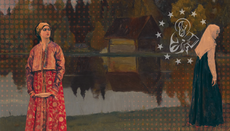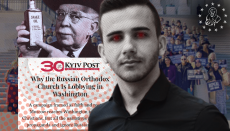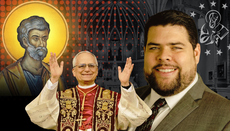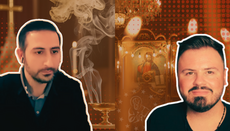From Protestant Pastor to Orthodox Priest
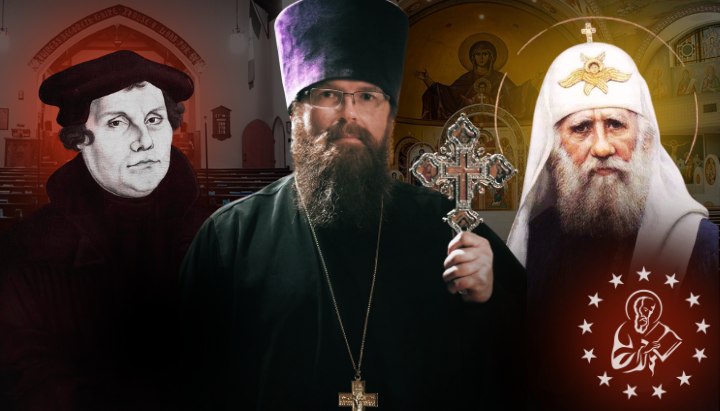
Joshua Genig was the son of devout Lutherans. From an early age, he dreamed of serving the Lutheran church as a pastor and teacher. He got his wish—and yet one thought kept him up at night: "Is any of this real?" After years of searching, Genig and his family were received into the Orthodox Church, and the Rev. Mr. Genig is now Father Joshua.
Fr. Joshua Genig was born to devout Lutherans in the great state of Michigan. His father taught at a school run by the Lutheran Church-Missouri Synod (LCMS). As he grew older, Genig discerned a call to ministry and enrolled in Concordia Theological Seminary in Fort Wayne, Indiana.
“At seminary, for the first time, I encountered the liturgy, rich in meaning and overflowing with the ability to bring order to my life,” he wrote in a 2014 essay for First Things. There, he developed a love for the Church Fathers and ancient liturgies, realizing that “by virtue of the Incarnation, all theology was principally Christology, and the sacraments were the source and summit of our very existence as humans.” It was also at the seminary that he met his wife.
After ordination, Genig served in a High-Church Lutheran parish in Wheaton, Illinois, where the congregation embraced liturgical worship. Yet, by then, he knew too much. Explaining his conversion during a recent episode of Barrel-Aged Faith, he quoted John Henry Newman: “To study history is to cease to be Protestant.” This was Genig’s experience, too.
A persistent question troubled him: “Are we just playing dress-up? Are we just playing church?” Despite the parish’s reverence, he felt a disconnect from the apostolic tradition. In his essay, he reflected, “What struck me within weeks of my ordination was the reality that most parishes did not ‘do church’ the way my parish did…. What this discontinuity signified, however, was a break in communion. We did not have ‘all things in common’,” he said, quoting Acts 2:44.
This unease prompted Genig and his wife to explore Catholicism and attend a Roman Catholic Mass. The recessional hymn, Lord of the Dance, underscored a familiar issue: a discontinuity in worship that mirrored Lutheranism’s challenges.
Seeking a deeper connection, they visited an Orthodox Church in Detroit. The setting was humble—a modest church in a rough neighborhood with a gated parking lot. The liturgy was unremarkable, but the scent of incense upon entering struck Genig profoundly. “I’m in a different reality,” he thought.
He turned to his wife and said, “We should be Orthodox”—to which she replied, “We’re not going to be Orthodox.” (It’s a familiar refrain to many men who fell in love with Orthodoxy and then had to wait, more or less patiently, for their wives to discover this love for themselves.)
Despite her initial hesitation, on December 1, 2013, Genig and his family were received into the Orthodox Church. “My only regret is that we didn’t do it sooner," he recalls.
Conversion from Orthodoxy is not like switching from one “denomination” to another. It’s far more than that. “I have embraced a way of life, not a set of dogmatic presuppositions,” he says in First Things. “In Orthodoxy, no man is above the liturgy, for the liturgy is the very hermeneutic of continuity and principle of unity.”
Fr. Joshua's decision was also driven by his desire to provide his children with the Eucharist from a young age, believing, as he wrote, that “those baptized and chrismated are admitted to the Eucharist, precisely so that when they grow up, they never remember a day without it.” He also found in Orthodoxy a vision of God as mercy, not wrath. “The word ‘mercy’ appears 140 times in the Liturgy of St. John Chrysostom,” he noted, emphasizing Orthodoxy’s focus on healing and restoration.
Reflecting on his journey, Fr. Joshua expressed gratitude for his Lutheran roots but found his true home in Orthodoxy. “I have done what the earliest Lutherans had hoped to do. Finally, I have come home,” he wrote, referencing the Lutheran reformers’ appeal to the Orthodox Patriarch in Constantinople.
Of course, Fr. Joshua has since been ordained to the Holy Priesthood. Currently, he serves as pastor of St. Innocent of Irkutsk Russian Orthodox Church in Redford, Michigan. He's also dean of the Central States Deanery for the Moscow Patriarchate in the United States and teaches on the faculty at Holy Trinity Seminary in Jordanville. In addition to his Ph.D from the University of St. Andrews (UK), he is completing degree work at the Moscow Theological Academy.
The UOJ is delighted to announce that Fr. Joshua will be contributing to our new "Ask a Priest" advice column. If you would like to submit a question, please write to [email protected].
